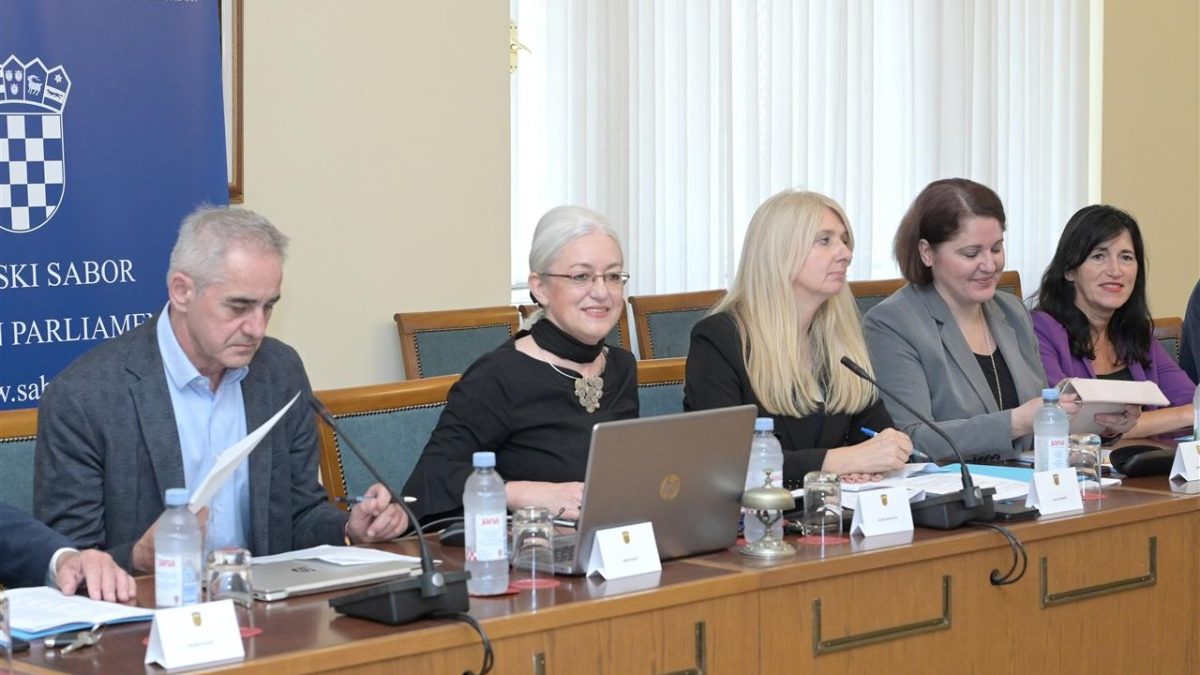Ombudswoman Tena Šimonović Einwalter participated on 25 June 2024 in a thematic session of the Committee on Education, Science and Culture of the Croatian Parliament. The topic of the session was “Vocational Education Reform – The Status of History and Other General Education Subjects.”
All participants of the session agreed that reform of education in vocational schools is necessary. However, certain issues with the proposed reform were pointed out. The Ombudswoman raised three substantive questions: first, whether the proposed model will ensure that all young people in Croatia acquire the competencies needed for the future; second, concerning vocational school students who plan to enroll in university; and third, regarding teachers — specifically, their involvement in the reform process and their employment status and rights.
Regarding the question of competencies, the Ombudswoman emphasized, given that as many as 70% of high school students in Croatia attend vocational schools, the importance of retaining general education subjects — or at least sufficient elements thereof — in vocational curricula. She stressed this is the means through which the state educates all citizens on topics that are of general importance, both to vocational school students and society at large, particularly highlighting the relevance of History and Political Science and Economics.
She explained that it is necessary to prevent, in advance, certain problematic phenomena observed in adulthood, and that the state can best do this through the education system, addressing all children. “When we consider what citizens will need in the future, if young people do not gain these competencies at home or in school, where will they acquire them?” the Ombudswoman asked, emphasizing that the state has a duty to ensure all young people acquire essential knowledge through the education system.
She pointed out that there is currently no systematic civic education — i.e., education for human rights and equality — nor health education; rather, these topics have been introduced through other subjects. She especially underscored the importance of retaining the subject Political Science and Economics, as current complaints submitted by citizens indicate insufficient knowledge of their own rights and the rights of others, a lack of understanding of where to turn when faced with a problem, and an alarmingly low level of trust in institutions. Teaching these subjects in school is therefore vital for fostering active citizenship in Croatia’s future democracy.
On the topic of vocational school students who plan to pursue higher education, while acknowledging the importance of reducing student workload and focusing vocational education on trades and practice, the Ombudswoman reminded attendees of educational inequalities and the recurring patterns whereby students from more educated and higher socio-economic backgrounds achieve significantly better educational outcomes than those from less educated or lower socio-economic families. She emphasized that, given the current educational system, it is important to maintain viable pathways to higher education for students who, for various reasons, chose vocational schools after primary school but later decide to pursue university studies.
In the context of young people’s competencies, she also referenced a World Bank study on the development of new technologies, including digitalization and artificial intelligence, which indicated the risks faced by students in vocational education and the risks to countries that fail to equip these youth with sufficient competencies for the current and future labor markets.
Finally, she called for greater attention to be paid to the comments of professionals (teachers) regarding the proposed reform, as they will be the ones implementing it in practice, and to the definition of teachers’ employment status and rights that will be affected by the reform.
In addition, the Ombudswoman emphasized the need for greater direct involvement of young people in the discussion, especially those who plan to attend, are currently attending, or have completed vocational education, as they possess direct insight and experience concerning the current situation and have visions and needs regarding their own future.
More on why general education subjects should be retained in vocational schools can be found in:
- The 2023 Annual Report of the Ombudswoman, in the chapter on Youth
- The Ombudswoman’s comments submitted during the public consultation on the Decision on the Adoption of General Education Subject Modules in Vocational Secondary Schools at Levels 4.1 and 4.2
- An interview with the Ombudswoman for N1 Television


